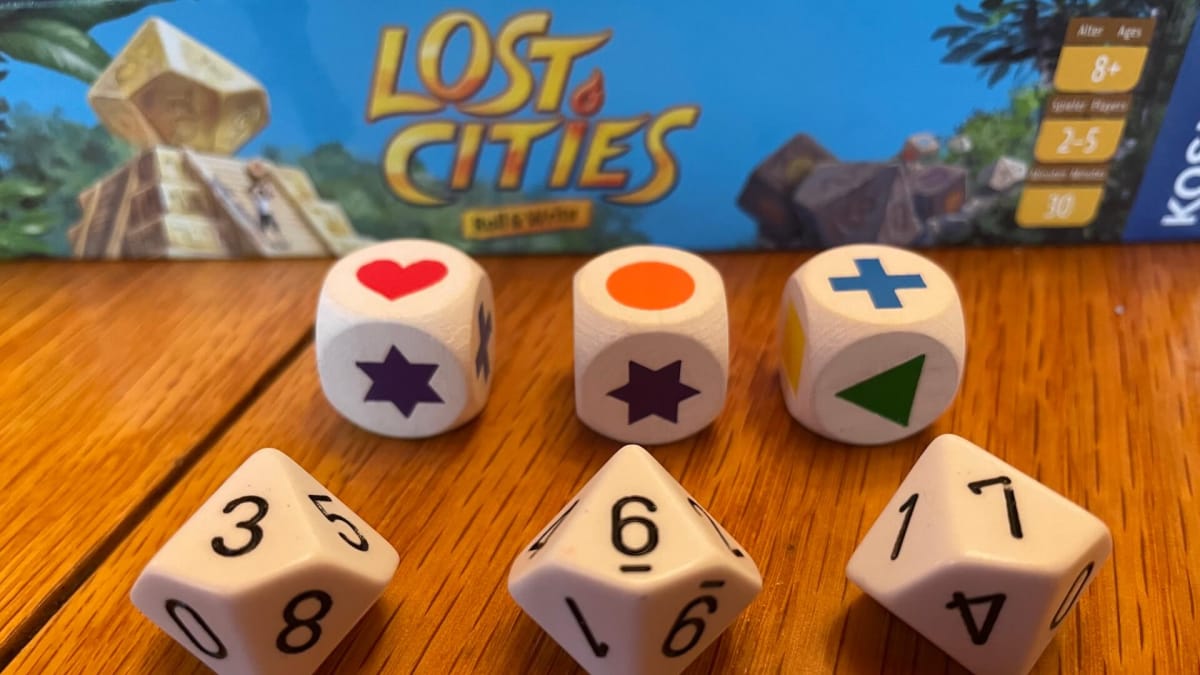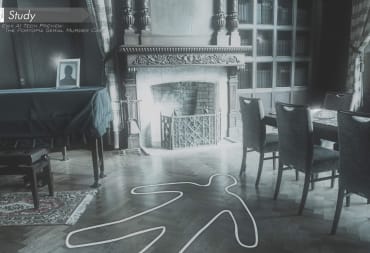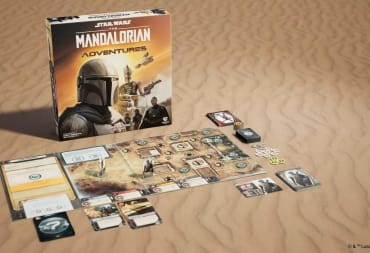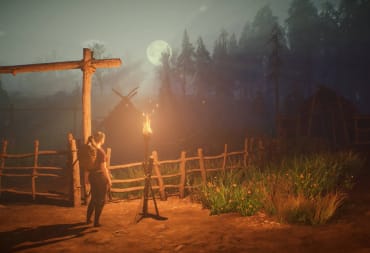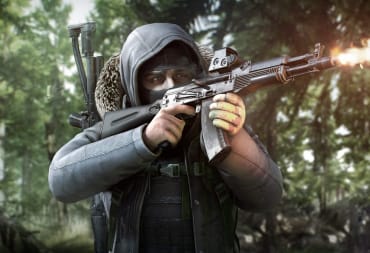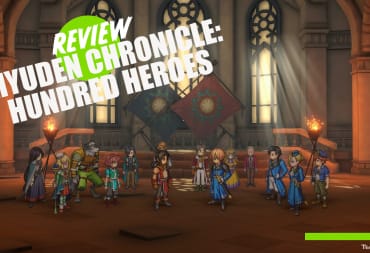It's the golden age of exploration and you've just touched down in a strange, forgotten land. You've heard tale of six lost cities scattered throughout the wilds, and you've made up your mind: you're going to go out and explore them. Whether for fame, fortune, or just the thrill of the unknown, your course is set. But other intrepid explorers like yourself have also started their expeditions, and in many ways their fate is tied up with your own. Which of these lost cities will you set out to explore? Which will you stake your reputation (and finances) on, and which will you leave behind for other adventurers? These are the questions you're tasked with answering as you roll the dice in Lost Cities: Roll & Write.
Created by famed designer Reiner Knizia, Lost Cities: Roll & Write is a spinoff of his 1999 smash hit two-player game Lost Cities, winner of the 2000 International Gamers Award. In Lost Cities: Roll & Write, two to five players compete with one another to score the most victory points by the end of the game. But what is a "Roll & Write"? Essentially, the name explains it all. Players roll dice, and then write the results of those dice (or make markings) on paper corresponding to those roles. The best mainstream example of this is Yahtzee, but Lost Cities: Roll & Write elevates that simple concept through clever design and more player interactivity than you'd expect.
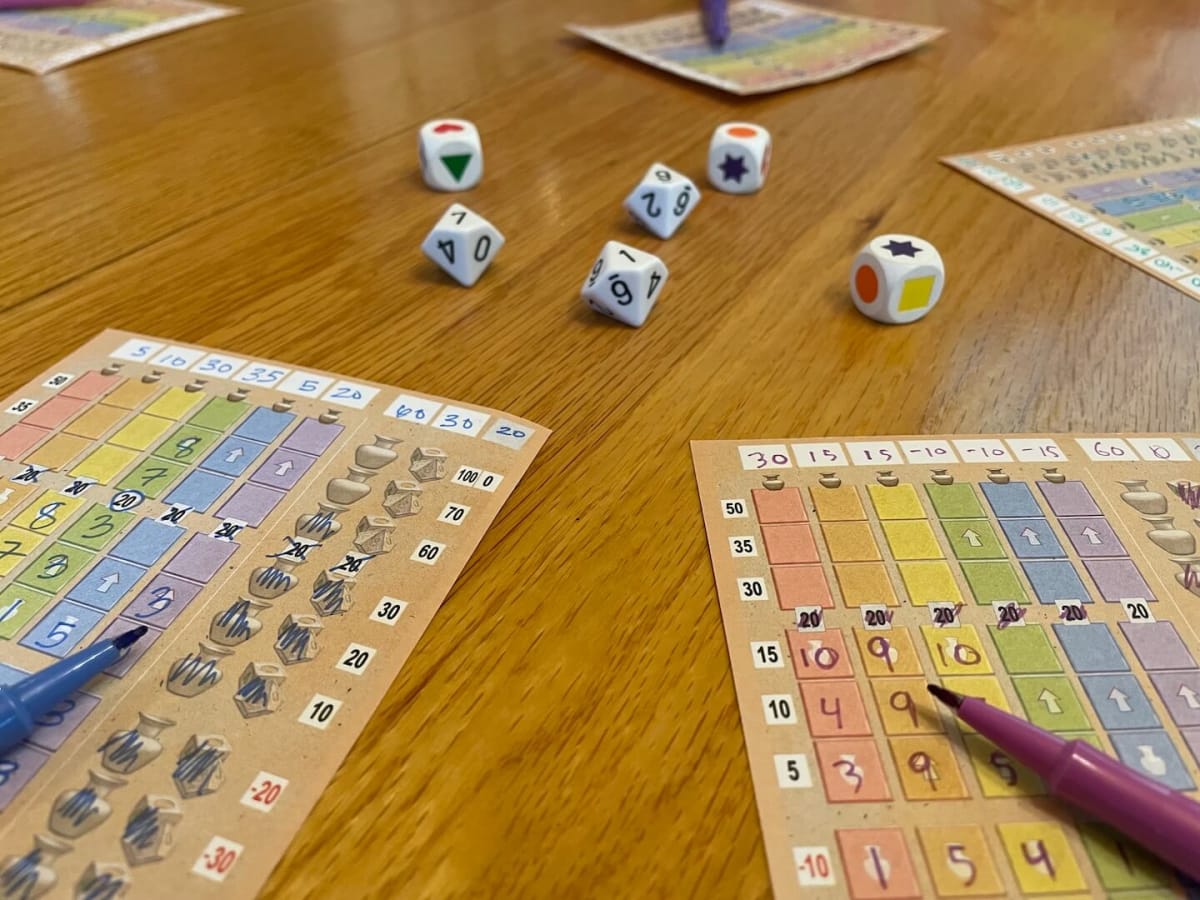
The game includes six dice. Three ten-sided dice numbering zero to nine, and three dice with custom shapes and colors on them. These colors correspond to six tracks on each player's scorecard. To play the game, the first player rolls all six dice, and chooses one number die and one symbol die for themselves. You'll mark your number on the corresponding colored column on their scoresheet, and the goal is to gradually increase in numbers until you reach the top of the column. You can never write a smaller number above a larger number, so it's best to start a colored column with as low a digit as possible. There are also special symbols on each track, like speed boosts and artifacts, that add another layer of strategy to the game. If you get stuck without many numbers in a column, you could get low (or even negative!) points at the end of the game. But carefully plan your scoring and with a bit of luck you could garner pretty impressive points.
But here's the truly special part of this game. The part that takes it leaps and bounds above most Roll & Write games. After the player rolling the dice takes the two dice they want, the other players at the table all share the pool of four remaining dice. So unlike in a game like Yahtzee where everyone waits on rolling player after rolling player until it's their turn, in Lost Cities: Roll & Write, players get to make decisions with each roll of the dice. It's just that, when you're not the player rolling the dice, you have a more limited pool of options available to you.
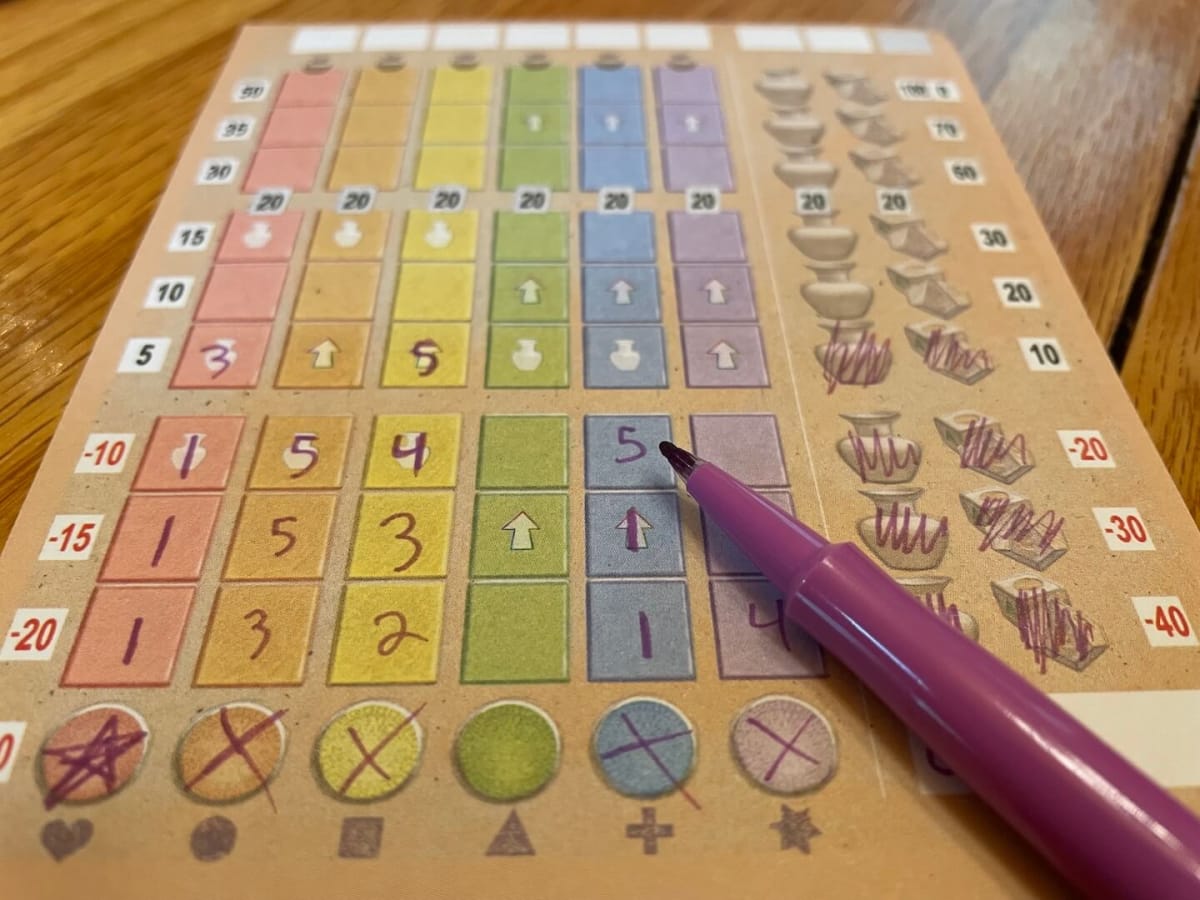
The theme of the game, that of explorers delving into the unknown, is fairly light. In the end, you're rolling dice and making marks on a piece of paper. But with elements of chance, and the surprise of a good roll, any concerns about staying engaged in the game ended up dissipating quite quickly in our play-throughs. The game is small in physical size, the box clocking in at only about 5x7 inches, and the actual game components are the six above-mentioned dice, a thick pad of score sheets, and the rulebook. But the depth of play hiding in this little box is absolutely astounding.
The Bottom Line
On a recent vacation in the Pennsylvania mountains with my family, my wife and I brought along a car load of games. Of all the games we brought, from family favorites like Dominion to exciting new releases, no game got more playtime than Lost Cities: Roll & Write. Its approachable nature, combined with the depth of choice and slight reliance on luck, was exactly the right mix for my extended family of mostly-casual gamers. There's nothing wasted in the design, packaging, or pricing of this game. With an MSRP of around $15 USD, it delivers more fun-per-penny than most games out on shelves today. This is an easy-to-teach, approachable game that puts most other Roll & Write games (from the classics to overly complicated new releases) to shame.
Get This Game If...
- You like games that are easy to teach and have a shorter playtime (each game runs around 30 minutes)
- You're a fan of the original Lost Cities
- You want light games with a dash of strategy
Avoid This Game If...
- You're looking for a heavier gaming experience
- You want a more deeply integrated theme
The copy of Lost Cities: Roll & Write used for this review was provided by the publisher, Thames & Kosmos.
Review Summary
Have a tip, or want to point out something we missed? Leave a Comment or e-mail us at tips@techraptor.net
